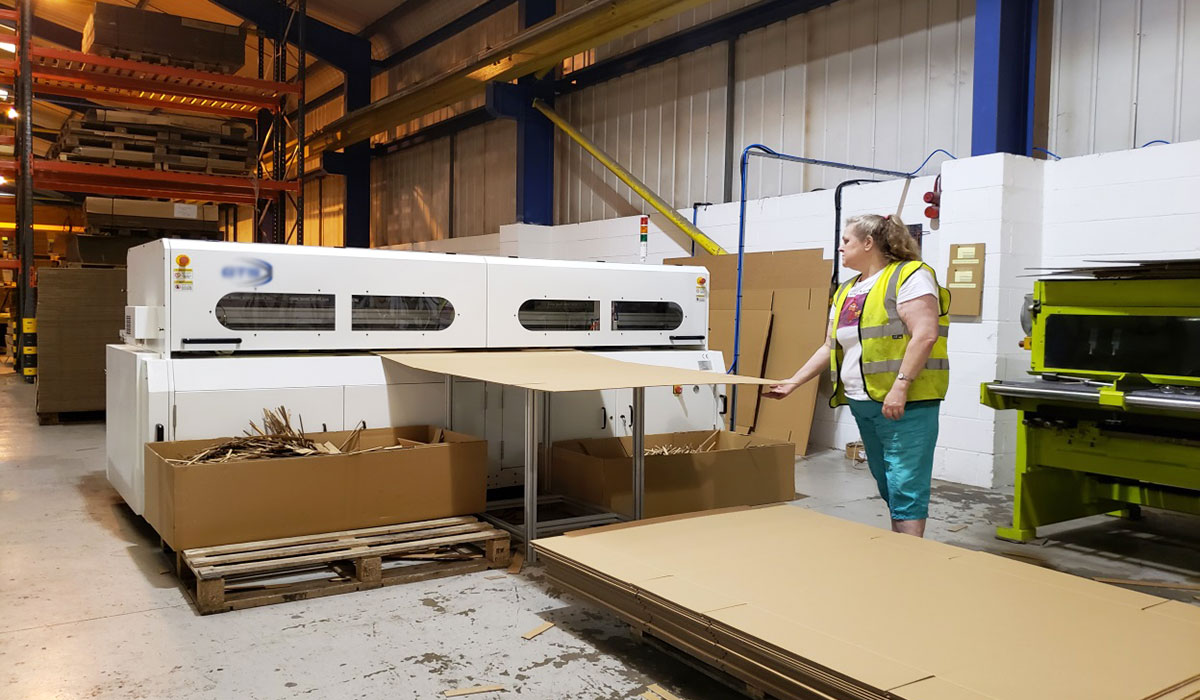In the world of manufacturing and packaging, efficiency and precision are paramount. As industries evolve and demand grows, the need for innovative solutions becomes increasingly pressing. One such innovation that has revolutionized the packaging industry is automated fabricante de cajas. These machines represent a fusion of technology and manufacturing prowess, offering a myriad of benefits that are reshaping how boxes are produced and utilized in various sectors.
The Rise of Automated Box Making Machines
Traditionally, box manufacturing involved a labor-intensive process that was time-consuming and prone to human error. However, the advent of automated box making machines has transformed this landscape entirely. These machines are equipped with advanced technology, including computerized controls, precision cutting mechanisms, and efficient material handling systems.
The rise of e-commerce and the increasing demand for customized packaging solutions have been significant drivers behind the adoption of automated box making machines. These machines offer the flexibility to produce boxes of various sizes and specifications, catering to the diverse needs of businesses across different industries. From small-scale enterprises to large corporations, automated box making machines have emerged as indispensable tools for streamlining packaging operations.
Advantages of Automated Box Making Machines
- Increased Efficiency: Automated box making machines can produce boxes at a significantly faster rate compared to traditional manufacturing methods. With automated processes and minimal human intervention, production cycles are optimized, leading to higher output levels and reduced lead times.
- Precision and Consistency: One of the key advantages of automated systems is their ability to maintain consistent quality and precision. These machines are programmed to execute tasks with utmost accuracy, ensuring that each box meets the specified dimensions and structural requirements. This level of precision minimizes waste and enhances overall product quality.
- Cost Savings: While the initial investment in automated box making machines may seem substantial, the long-term cost savings are considerable. By streamlining production processes and minimizing material wastage, businesses can achieve significant reductions in operational costs over time. Moreover, the scalability of automated systems allows for efficient resource utilization, further enhancing cost-effectiveness.
- Customization and Versatility: Automated box making machines offer unparalleled flexibility in terms of box design and customization. Whether it’s varying box dimensions, styles, or printing options, these machines can accommodate a wide range of specifications to meet the unique needs of customers. This versatility enables businesses to adapt quickly to changing market trends and consumer preferences.
- Enhanced Sustainability: Sustainable packaging has become a priority for many businesses seeking to minimize their environmental footprint. Automated box making machines play a crucial role in this regard by optimizing material usage and reducing wastage. Additionally, the ability to produce on-demand eliminates the need for excess inventory, further promoting sustainability across the supply chain.
Applications Across Industries
The applications of automated box making machines extend across diverse industries, including e-commerce, food and beverage, pharmaceuticals, electronics, and more. These machines are utilized for packaging a wide range of products, from consumer goods and electronics to perishable items and medical supplies. With customizable packaging solutions and rapid production capabilities, businesses can enhance brand identity, improve product protection, and elevate the overall customer experience.
Future Outlook
As technology continues to advance and consumer demands evolve, the role of automated box making machines in the packaging industry will only become more prominent. Innovations such as robotics, artificial intelligence, and predictive analytics will further enhance the capabilities of these machines, enabling businesses to achieve new levels of efficiency, agility, and sustainability.
